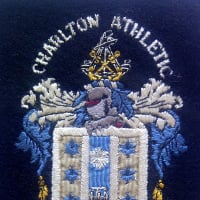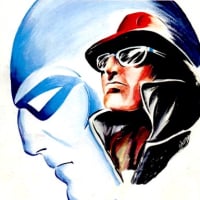Attention: Please take a moment to consider our terms and conditions before posting.
Terminology origins.
Comments
-
There is still a ha ha to be seen in Charlton Park behind Charlton House.0
-
Absolutely right - "Dead Ringer" is a 19th century phrase from America. A dead ringer was a horse substituted for a racehorse to fool bookies. Similarly "saved by the bell" is a boxing term.bobmunro said:There are a lot of stories about how people in the past were terrified of being buried alive and thus, they installed bells on their graves, so if they woke up after burial, their rings would be heard, and they could be dug up and saved. The stories go on to say that people would be employed to stay at the graveyard overnight, in case these bells started ringing and thus, they would work a "graveyard shift." If they found someone ringing, that person would be "saved by the bell" and be a "dead ringer," meaning that they looked just like a dead person, but were actually alive.I'm afraid they are all urban myths as well - an email circular in 1999 was distributed widely - entitled 'Life in the 1500s'. None of the contents had any basis in historical fact.1 -
It always amuses me that the South Stand at Carrow road (on the South East side of the ground) isn't a geographical name, but instead is actually named after Sir Arthur South, a former Chairman and local politician!Henry Irving said:Before WW1 one of Charlton's top strikers was James South.
Unfortunately he lost one of his feet in a work accident at Siemans factory so converted to goal keeper.
"Lucky Jim" as he was known to fans (the inspiration for Charlton fan Kingsley Amis' book) then lost his sight in a pub fight but carried on playing in goal. Jim said he could play by sense of smell.
When Charlton went professional Jimmy became groundsman at the new Valley but died in a lawn mower incident in 1925.
In recognition of his great service the club named the open end at the Valley "The Jimmy South Stand".
With @Tom_Hovi and @SE7toSG3 I'm writing a biography of Jim's life.0 -
Going round the bend.In olden times, mental institutions were usually built out of view in order to hide away the inhabitants. The most common method was to build an entrance road with a bend in it and then have the property built behind trees to mask it from the public road.Hence the phrase ‘going round the bend’.2
-
Most of the streets in the City of London were named before ‘road’ entered the English language. Consequently, it has Alleys, Streets, and Squares aplenty, but until 1994, there was not a single Road in the entirety of the Square Mile.
2 -
Many scientists think that not only is time travel theoretically possible, but it has been (was? will be?) perfected at the practical level.
However, like radio and TV, it depends on the use of transmitters and receivers, although with much greater energy requirements.
It is thought that Nikola Tesla developed the transmitter in 1887 having realised the electromagnetic nature of Time but, because a suitable receiver is yet to be devised (expected date is 2026), there is a vast queue of potential time travellers from the future building up (socially distanced, of course). These usually partly manifest themselves in the form of what we call 'ghosts'.
Time, of course, is nothing more than an arbitrary concept invented by Man to explain the fact that things seem to occur in sequence. If we remove the apparent human need for 'Cause and Effect', we have no need for time. A similar effect can also be achieved by mixing Texas medicine and railroad gin.
0 -
36 posts and not one reference to Etymology, which is the word best suited to the subject matter.
Really, I thought this was Charlton 0
0 -
That's the study of insects.calydon_road said:36 posts and not one reference to Etymology, which is the word best suited to the subject matter.
Really, I thought this was Charlton
2 -
Interestingly, I looked up the word 'dictionary' in the Dictionary recently.
Pretty much what I expected.
0 -
Only if you’ve misread the thread title as Termiteology originscalydon_road said:36 posts and not one reference to Etymology, which is the word best suited to the subject matter.
Really, I thought this was Charlton 1
1 -
Sponsored links:
-
Brilliant. Now that is a nice play on wordsShootersHillGuru said:
Only if you’ve misread the thread title as Termiteology originscalydon_road said:36 posts and not one reference to Etymology, which is the word best suited to the subject matter.
Really, I thought this was Charlton 0
0 -
Only if you thought I was being serious in the first postShootersHillGuru said:Gotcha0 -
I bet you used to love Viz ?Henry Irving said:
Only if you thought I was being serious in the first postShootersHillGuru said:Gotcha0 -
Was OK in the 70s but by the 80s it was rubbishShootersHillGuru said:
I bet you used to love Viz ?Henry Irving said:
Only if you thought I was being serious in the first postShootersHillGuru said:Gotcha2 -
ShootersHillGuru said:A Ha Ha is a ditch that is obscured from a view. Often used in gardens of stately homes to prevent deer approaching the front of the house but not noticeably visible and spoiling the line of the view of the lawn.
When they built the shooting range at the barracks for the Olympics they closed Ha Ha Road and erected a sign that read: ‘Ha Ha Road closed for Olympics’
Obviously, locals that knew the road was called Ha Ha, understood, but anyone visiting the area thought the Mayor of London had put up a message laughing that the road that had been temporarily closed.
12 -
Mohawk/Mohican hairstyle.
Don't know how this came about. The well-known style was actually worn by the Huron and Pawnee but not the Mohawk/Mohican tribes who plucked out all their hair apart from one small area at the back of the crown which they let grow long.0 -
Isoptra is the study or termites.
I guess you either love them or hate them.0 -
No, sorry that's Marmite not termites.0
-
Talking of termites, one so called 'myth' we can categorically 100% say is true is that in London, you are never more than 164 feet away from a rat.0
-
Too many sailors drowned whilst digging the graves so they would often hide the body under a canvas or flag and tip it into the sea when they thought nobody was watching.ShootersHillGuru said:Why wouldn’t the dead on ships be buried at sea ?
2 -
Sponsored links:
-
LOLShootersHillGuru said: 0
0 -
The last two posts. Am I missing something?1
-
-
Balls brass monkey.0
-
Fixed.guinnessaddick said:Silly Billy was a type of clown common at fairs in England during the 19th century. They were also common in London as a street entertainer, along with the similar clown Billy Barlow. The act included playing the part of a fool or idiot, and going to Millwall.1 -
What a shame it’s not on the north side of the ground.killerandflash said:
It always amuses me that the South Stand at Carrow road (on the South East side of the ground) isn't a geographical name, but instead is actually named after Sir Arthur South, a former Chairman and local politician!Henry Irving said:Before WW1 one of Charlton's top strikers was James South.
Unfortunately he lost one of his feet in a work accident at Siemans factory so converted to goal keeper.
"Lucky Jim" as he was known to fans (the inspiration for Charlton fan Kingsley Amis' book) then lost his sight in a pub fight but carried on playing in goal. Jim said he could play by sense of smell.
When Charlton went professional Jimmy became groundsman at the new Valley but died in a lawn mower incident in 1925.
In recognition of his great service the club named the open end at the Valley "The Jimmy South Stand".
With @Tom_Hovi and @SE7toSG3 I'm writing a biography of Jim's life.0 -
I was given a Thesaurus for Father's Day … I was lost for words.calydon_road said:
Actually, I'm hoping that it will improve my word-thingy really, really much.
0 -
The first winner of the Valley Club pickled egg eating and yard of ale drinking competitions was none other than the great grandfather of Kent cricketer Sam Northeast.
Edmund Northeast still held the record for both events when the Valley Club closed its doors for the final time.
To recognise this achievement, when The Valley underwent works to fill in the corners either side of the covered end, it was decided to name the corner where the Valley Club once stood after Edmund. Hence the Northeast Quadrant.
3








